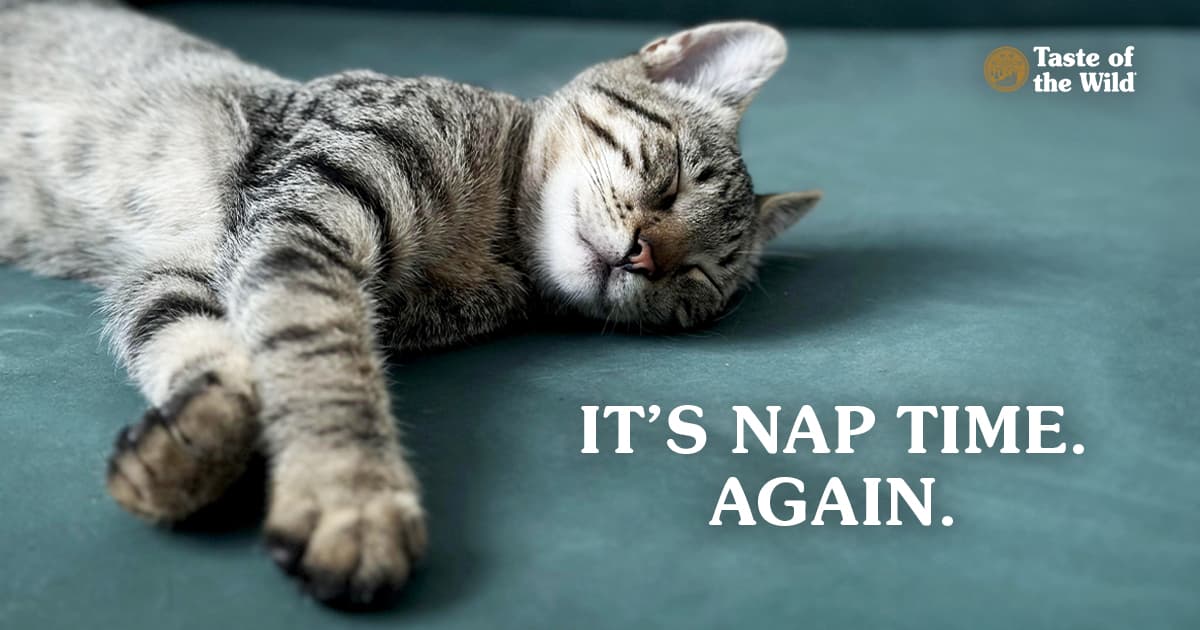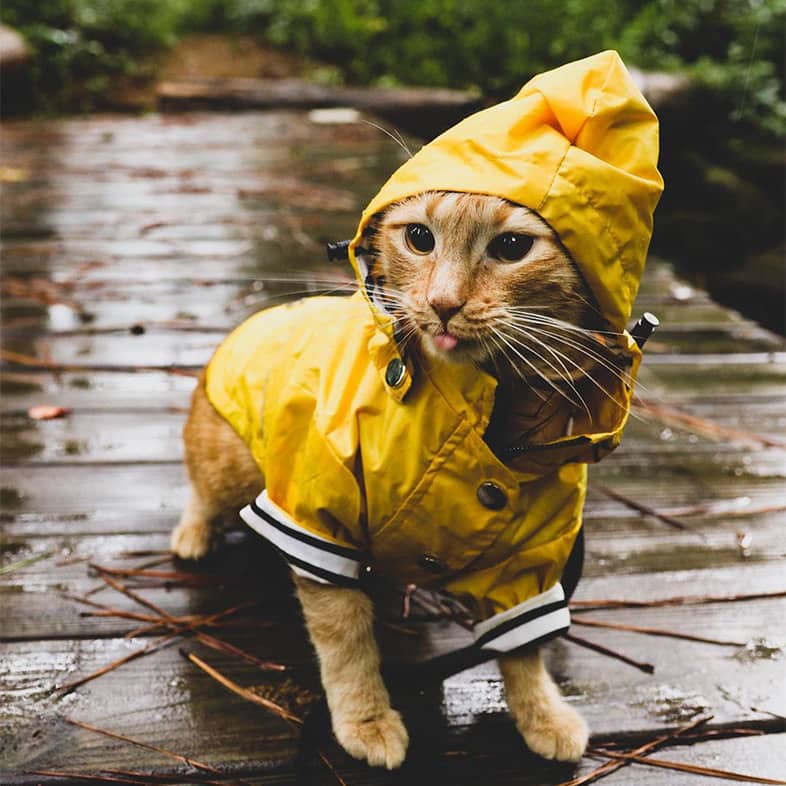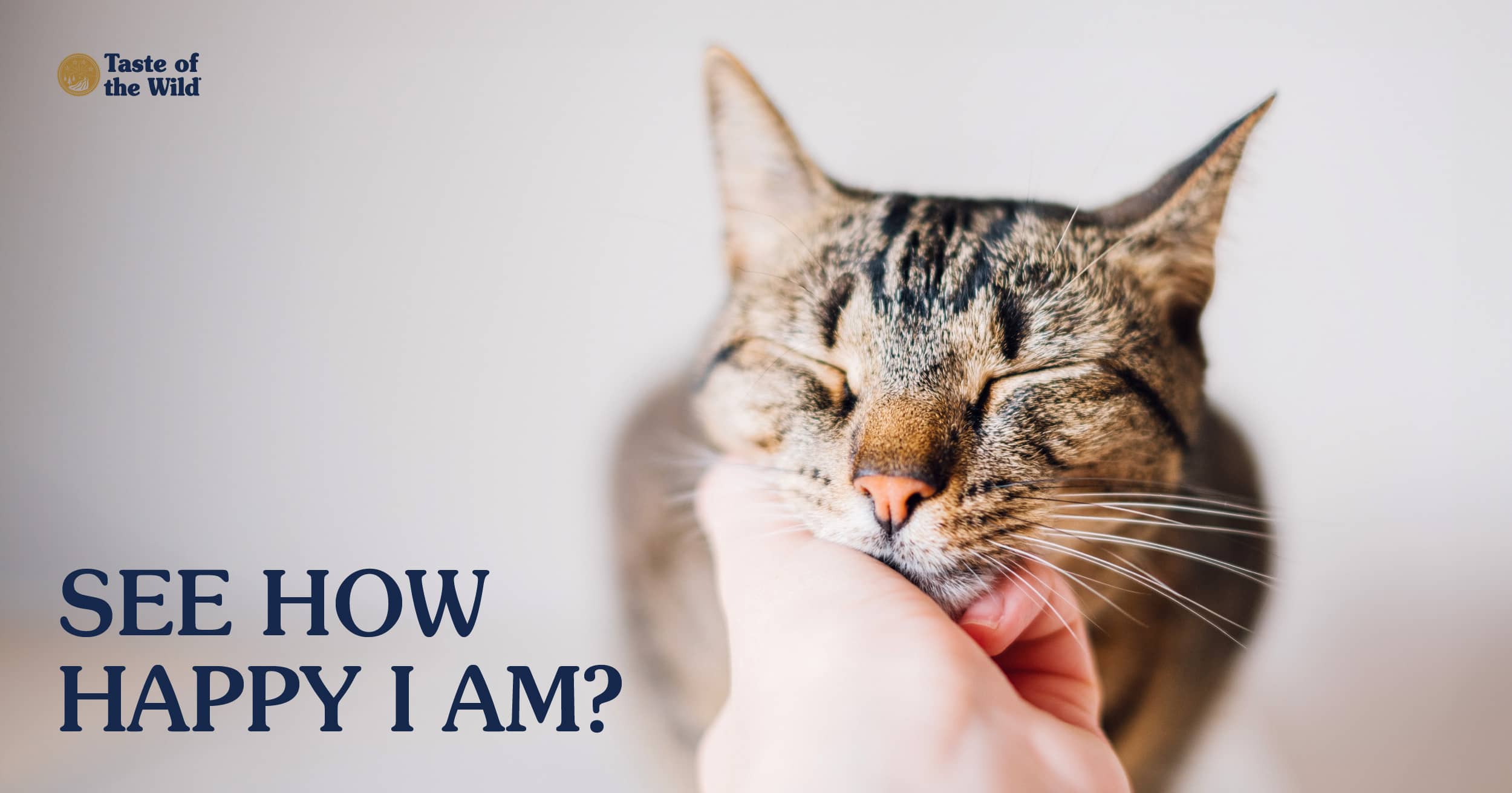Why Do Cats Sleep So Much?
Category: Training & Behavior

What do most cats spend more time doing than anything else? Sleeping! A cat’s typical daily schedule seems to be: sleep, eat, sleep, play, nap, sleep, nap, eat, sleep, play, sleep and repeat! This sleepy lifestyle isn’t just a domestic cat pattern though — it’s followed by wild cats, too. Let’s find out why cats need so much shut-eye.
How Many Hours a Day Do Cats Sleep?
In general, adult cats tend to spend around 12 to 16 hours a day sleeping. How much they sleep depends on their age, breed, size, personality, environment and activity level. Senior kitties typically sleep even more than this, as cats are generally less active and have a slower metabolism as they age.
It may seem like your favorite feline sleeps in the same spot for hours at a time, but they actually take many short naps throughout the day — it’s where the term “catnap” comes from. These catnaps usually last around 15 to 30 minutes and are just a light sleep. That way they can rest and recharge but remain alert and ready to spring into action if predators come nearby (or they hear the rattle of the treat bag).
Cats will also sleep deeply, but this only lasts around five minutes at a time. You can tell if your cat is in a deep sleep because their body posture will look more relaxed than when they’re in a light sleep and listening for potential threats (or treats).
How Much Do Kittens Sleep?
Like most baby animals, younger cats need a lot of sleep — up to 20 hours a day. All that growth and development, plus rambunctious playtime during their awake periods, requires lots of rest and energy replenishment. So if your kitten is napping, hold back the urge to play with them; let the little cutie get some rest.
But How Much Sleep Do Cats Need?
The main reason that cats need around 12 to 16 hours of sleep a day is to rest, recharge and conserve energy. Life for domestic cats’ ancestors was tough, as they needed to hunt their prey without becoming prey themselves. This required staying on top of their game physically and mentally, and sleep was a big part of this. Even today, domestic cats need sleep to stay healthy, replenish energy levels and keep their minds sharp — even though the only thing they’re hunting down is you to remind you that it’s dinner time.
Why Is My Cat Sleeping So Much?
It’s completely normal for cats to sleep much of the day away, and they do this for many different reasons. We’ve mentioned rest and energy conservation, but another common reason house cats may appear to sleep a lot is because they’re understimulated or bored. Cats need to express natural instincts and behaviors like hiding, hunting, scratching and scent marking. Providing environmental enrichment can help balance their rest and activity cycles.
Stress and anxiety can also cause cats to sleep more. It’s important to provide your cat with enrichment to make sure their behavioral needs are met and they’re mentally stimulated. Without the ability to express their natural instincts, cats can become stressed, potentially leading to illness and unwanted behaviors. Providing your kitty with mental and physical stimulation as well as other enrichment opportunities (e.g., scratching posts, window perches, toys) can help keep them happy and comfortable in your home.
Another reason why your cat appears to sleep so much is that they may be awake while you’re asleep. Cats are crepuscular (not nocturnal), which means they are most active during dawn and dusk when light levels are low. It’s possible that your cat wakes up in the early morning hours (even before dawn) and that’s why they need so many naps during the day.
Why Have My Cat’s Sleeping Habits Changed?
If you notice that your cat begins sleeping more or less than normal, contact your veterinarian for advice. Some health conditions can cause a cat’s normal sleep patterns to change, including hyperthyroidism (overactive thyroid), hypertension (high blood pressure), anxiety, stress and pain. If you have a senior cat, they can develop cognitive dysfunction (like dementia in people) that can also create a disrupted sleep cycle.
It’s in a cat’s nature to sleep over half the day away. You know your cat’s sleeping habits, so if their typical sleeping pattern changes, make an appointment with your vet. Erratic sleep patterns combined with other behavioral changes like excessive grooming, increased or decreased appetite and changes in litter box habits could indicate a health issue.
The information in this blog has been developed with our veterinarian and is designed to help educate pet parents. If you have questions or concerns about your pet’s health or nutrition, please talk with your veterinarian.




